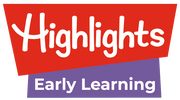5 Benefits of Music in Preschool Classrooms
Playing an instrument, reading music, taking voice lessons all support a child’s cognitive development. That said, a formal long-term commitment isn’t necessary to reap music’s plentiful rewards for preschoolers. The benefits of music in the preschool classroom are holistic, nurturing children in mind, body, and spirit.
To quote Plato, “I would teach children music, physics, and philosophy; but most importantly music, for the patterns in music and all the arts are the keys to learning.”

Here are 5 benefits of music in a preschool classroom.
Health & Wellness Benefits
People tend to gravitate toward music when they’re emotional. All those hit love songs exist for a reason! The same is true for children: music helps them express happy feelings and cope with sad or stressful ones. Science supports the mental and emotional benefits of music in the preschool classroom, explaining the increase of feel-good endorphins and dopamine and the decrease of stress-inducing cortisol.
Simply singing a song is a proven form of therapy, helping children regulate their emotions and self-soothe when anxious. Music is also a vehicle for self-expression and creativity. Whether making it, listening to it, or dancing to it, children use music as an emotional and creative outlet.
Looking for a way to infuse music and fun into your classroom? Try this Paper Tambourines craft from Preschool With a Purpose! Your preschoolers will be tapping beats and sharing smiles before you know it! Download the activity for free!
Brain Benefits
Perhaps some of the more well-known benefits of studying music are the academic advantages. Music education has long been linked to things like increased math aptitude because the same part of the brain is used to perform both musically and mathematically. However, music promotes overall brain development. Wind Symphony Director Chip Staley notes how the auditory, visual, and motor areas of the brain light up during musical activity. When these “systems work together, communication between both hemispheres of the brain becomes faster and clearer.”
Mary Luehrisen, executive director of the nonprofit National Association of Music Merchants, agrees: “A music-rich experience for children of singing, listening, and moving is really bringing a very serious benefit to children as they progress into more formal learning.” Preschool-appropriate musical activities like clapping or tapping along to the beat aid in the eventual development of higher-level thinking skills such as solving complex problems and executive functioning skills such as adaptability and decision-making.
Motor Skills Benefits
Any early childhood educator will attest to the importance of fine motor skills development, particularly for those pesky scissor activities! Introducing a child to small musical instruments like rhythm sticks or maracas helps them master skills such as holding a pencil or correctly holding scissors. Music in the preschool classroom also hones gross motor skills via dancing, jumping, and swaying to the beat.
The better children can coordinate their brain and body movements, the more confident they become and, ultimately, the more willing they will be to embrace more movement.
Language & Literacy Benefits
Nursery rhymes and silly songs delight young children to no end, and that’s good news for their speech and literacy skills. Rhymes, rhythm, and repetition help kids recognize sounds and words. For example, when first learning their ABCs, many children believe the letters “L-M-N-O-P” is the word “elemenopee.” They eventually learn the sequence is composed of individual letters, each with their own sound.
Because singing uses similar building blocks as language, children who regularly sing songs have been proven to learn to speak more easily. Additionally, those who practice keeping time, by tapping their feet to the beat, for example, are typically stronger readers. Perhaps, though, the most important benefit of integrating music into early childhood learning is that it establishes a love of language early on.
Social-Emotional Benefits
Last but surely not least are the clear social-emotional benefits of music in the preschool classroom. Young children are just learning how to interact with different environments and all kinds of people; incorporating music into these experiences jumpstarts their social development and encourages relationships with classmates and teachers.
Singing in unison or moving in sync nurtures a connection. When children “speak” the collaborative language of music, it creates community. Not only that, but music is also expressive and feeds the soul. The beauty of preschoolers singing is that they are not self-conscious; those little ones happily belt out a tune like they’re performing at the Grammy’s! Doing so brings them great joy and we could all use a little more joy in the classroom and in life!
Did you love this article? Get regular updates about preschool products, teaching tips, and ideas to cultivate joyful learning in your classroom. Don't miss a thing - sign up today!
About the Author:

Stephanie Jankowski is an educator and author who lives in Pittsburgh, Pennsylvania. When she's not teaching or writing, she's spending time with her children, Brady, Ella, and Lyla, and marveling at just how short the years really are.


